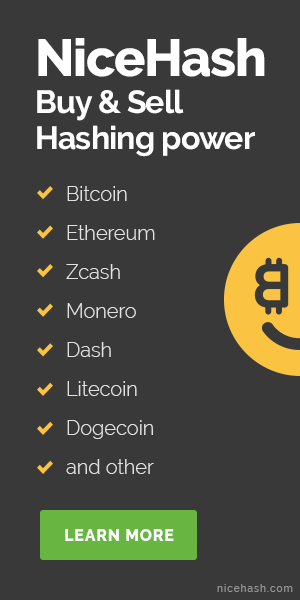Still a great entry
point for beginners
Before you even got into cryptocurrency, it’s very likely that you heard about Coinbase somewhere. After all, it’s one of the biggest and oldest cryptocurrency exchanges around and is often seen as the entry point for beginners.

Now with new competitors in the game however, the landscape is slightly different, and this short review aims to see how Coinbase is doing in 2018 compared to its competitors.
What does it offer?
Coinbase is probably the most straightforward cryptocurrency exchange available, which allows new users to get into trading in the most intuitive manner possible, yet also has the tools available for more experienced traders (GDAX).
Here are some of its main features:
- Supports the top cryptocurrencies (BTC, LTC, ETH and BCH) with ERC20 based tokens coming in the future.
- Operational in 32 countries.
- Support Fiat payments through Bank transfers, wire transfers, credit and debit cards.
- An advanced trading engine available for experienced and institutional traders.
- A vault system available to customers that want to store their coins in the most secure way possible.
- An insurance policy that covers every coin that is stored on their servers.
- A VISA debit card available to US users.
What does the community think of it?
The overall consensus towards Coinbase is positive. It’s usually recommended to newcomers as it’s a very straightforward exchange to use and has GDAX available for experienced traders. It’s an overall feature complete exchange. The only complaints you’ll hear from the community are either:
- The lack of support for more coins.
- The less-than-stellar customer service, which is pretty common.
Additionally, you might hear one more thing that the community doesn’t particularly like, which is the fact that Coinbase monitors its users, as in where they send their cryptocurrency to. This is usually done to ban users that make darknet purchases or that make transactions related to gambling sites, so majority of the user base isn’t affected by this. However, the lack of anonymity is something that not everyone likes.
There is also the aforementioned order issued by the IRS to hand over customer financial data if their yearly transactions go past $20,000, which is quite unreasonable considering the price of the coins Coinbase supports. But that’s something the exchange actually has been fighting against ever since the order was issued.
Fees
Fees in Coinbase vary depending on the payment method you’re using, but it can range from 1.49% to 3.99%. For a more detailed breakdown on fees, you can refer to their website here and look for the fees in whichever country you’re in.
Pros & Cons
Pros
- Extremely simple to use, making it ideal for beginners.
2. An advanced trading engine that experienced users can rely on.
3. Reasonable fees.
4. Supports the major cryptocurrencies.
5. Highly secure – no security breaches at all up to this day.
6. An instant buy feature is available.
7. An option to insure your bitcoin deposits is available.
8. The vault storage system is great for those that have a high amount of coins and want to keep them in the most secure place available (although keeping your coins in a personal wallet is always the best option).
Cons
- Customer support should improve to actually deal with the ever-increasing amount of new users.
2. The platform often goes down during periods of extremely high usage. It’s a relatively minor con as the downtime usually lasts minutes or a couple of hours, and it’s something Coinbase is aware of and is actively working to solve.
3. The lack of support for more altcoins.
To sum it up
Even to this day, Coinbase is still the first recommendation a beginner will get to get into trading. It’s easy to use and has the tools a new and experienced user would need. The fact that it supports fiat currency is also a huge plus if you’re just getting started. Overall, the platform is extremely secure, feature-complete and is really easy to use. The only thing that brings Coinbase down is the lack of support for more coins, and the fact that they monitor their user base might be a deal breaker for some. However, that doesn’t stop it from still being one of the most reliable and secure exchanges around.
About Coinbase
Founded back in 2011 and seeing its release just a year later, Coinbase is probably one of the most popular and relevant exchanges of all time due to its fast growth and its commitment to push cryptocurrencies into the mainstream. The exchange is based in San Francisco, California, and over the course of six years it would become known as one of the biggest crypto exchanges in the world and an entry point to the world of cryptocurrency trading.
Within two years of it release, the exchange grew to have one million active users, acquired the Blockr blockchain explorer service and secured insurance that covers the value of bitcoin stored on their servers. Additionally, that same year Coinbase launched their vault system so that users could store their bitcoin offline.
Alongside of that, throughout the entirety of 2014, the exchange formed several partnerships with big brands such as Dell, Expedia, Overstock, and Dish Network so that they could push the acceptance of bitcoin as a form of payment.
In 2015 Coinbase released their US based bitcoin exchange aimed at professionals called Coinbase Exchange. Naturally, this exchange offered features that go above and beyond what the casual trader would need. In the same year, Coinbase started offering its services in Canada, which unfortunately didn’t last long as the Canadian online payments service provider Vogogo closed in July of 2016.
In 2016, the company rebranded its advanced exchange from Coinbase Exchange to GDAX, or Global Digital Asset Exchange and started to support Ether in the exchange for professional traders. Later on, retail support for Ether was added.
Later on, in 2017, Coinbase obtained the licenses required to trade in Ethereum and Litecoin from the NY State Department of Financial Services. In November of that same year, seeing how popular cryptocurrency was becoming, the United States’ Internal Revenue Service (IRS) ordered Coinbase to report users that had at least $20,000 in transactions in a year.
On February of 2018, Coinbase contacted around 13,000 affected customers to inform them that they’d be providing personal information, including transaction records from 2013 to 2015 within 21 days.






